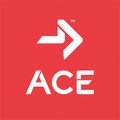The brain is a remarkable organ. It is responsible for your ability to think, problem solve, process emotions, make memories, your five senses (sight, taste, touch, smell and hearing) and physical movement. With so many things to do, your brain requires a lot of energy. Proper nourishment will keep your brain happy now and prevent diseases typically associated with aging.
The basic working unit of the brain is the neuron. It is a specialized cell that transmits information to other nerve cells, muscles or glands via chemical messengers known as neurotransmitters. There are approximately 100 billion neurons in your brain that rely on a steady stream of energy to function. The right foods will take care of your brain and keep it functioning properly. Conversely, the wrong foods will not nourish your brain and can speed up age-related brain diseases and disorders, including Alzheimer’s disease, dementia, cognitive decline and impaired memory.
The good news is that we are seeing more and more studies that highlight which foods are best for a healthy brain.
THE MIND DIET
This diet is a combination of the Mediterranean and DASH diets, both of which are revered for their ability to lower blood pressure, reduce risk of cardiovascular disease and decrease risk of diabetes. Participants who adhered to the diet lowered the risk of developing Alzheimer’s by as much as 53%. It is thought that the diet works by lowering oxidative stress and inflammation, both of which can be quite detrimental to the brain. This diet is full of antioxidant-rich berries and vegetables, lean proteins, wild-caught fish, legumes, nuts, seeds, avocado and olive oil, all of which decrease inflammation. The more you can control inflammation, the healthier your brain will be.
VITAMIN D
Known as the “sunshine” vitamin, vitamin D has long been known for its role in the development of strong bones. More recent findings have linked vitamin D deficiency to non-skeletal conditions such as cardiovascular disease, diabetes, stroke, cancer, cognitive impairment and dementia. The best source of vitamin D is the sun (UVB rays), but most people are cautious about sun exposure and increasing their risk of skin cancer. Plus, wearing sunscreen blocks the absorption of the rays that allow for the vitamin D to enter the body. There are limited foods that are rich in vitamin D, so supplementing with Vitamin D3 is often recommended. Consider getting your blood vitamin D levels checked to determine how much vitamin D you will need to supplement. According to the Vitamin D Council, your recommended intake could range from 1,000-5,000 IUs.
PREBIOTICS AND PROBIOTICS
Good health begins in the gut. The bacteria that live in your gut number in the trillions and it is both the diversity and the ratio of good bugs to bad bugs that impact the health of your body, including your brain. We know that the gut bacteria directly communicate with your brain, influencing the production and function of neurotransmitters. Probiotics—the good bugs—can be found in fermented foods, such as kimchi, miso, kefir, yogurt and sauerkraut. Prebiotics—the indigestible fibers found in plant foods—keep the probiotics alive and kicking. Onions, garlic, asparagus, oats, jicama and Jerusalem artichokes are some of the richest source of prebiotics. Including these foods in most of your meals will help cultivate a diverse and robust gut microbiome.
OMEGA-3 FATS
Approximately 8% of your brain is made up of omega-3 fats, which serve as the building blocks for your neurons. The two most important omega-3s—DHA (docosahexaenoic acid) and EPA (eicosapentaenoic acid)—play a role in brain development and function, protecting it from oxidative damage and inflammation. Omega-3-rich foods include wild Alaskan salmon, mackerel, sardines, wild Pacific halibut and algae. Plant-based omega-3 fat comes in the form of ALA (alpha-linolenic acid), which can be converted to EPA and DHA, but is done so poorly. That’s not to say that these foods (ground flax seed, chia seeds, walnuts) aren’t helpful; they are important for their fiber and other inflammation-lowering properties.
TURMERIC
Turmeric is a root widely used in Indian and Southeast Asian cooking, usually as part of a curry recipe. Curcumin is the active compound in turmeric that can decrease inflammation and increase brain-derived neurotropic factor (BNF), which amplifies growth of new brain cells, enhances memory and increases the size of the memory center (hippocampus) of the brain. Best absorption of curcumin takes place when turmeric is combined with black pepper in a recipe.
FOODS TO AVOID
The list of foods that promote inflammation, hasten cognitive decline and increase the risk of developing Alzheimer’s disease should come as no surprise. These foods seem to be on the “avoid” list for many experts in the field of brain health and functional medicine. While strict avoidance may be impossible, limiting their intake is absolutely possible.
SUGAR
In any of its 50-plus forms, sugar is problematic because it causes inflammation and elevates blood sugar and insulin levels. In fact, Alzheimer’s disease is now being called type 3 diabetes by many healthcare professionals. Multiple studies have found that being obese and having diabetes significantly increases one’s risk for developing the brain-altering disease (even when considering genetic predispositions). When you do reach for something sweet, try a piece of 70% dark chocolate, which is lower in sugar than most sweet treats.
REFINED CARBOHYDRATES
White flour-based foods—bread, cereal, crackers, cookies and pastries—impact blood sugar levels and insulin production in the same fashion as pure sugar. Whole-grain versions of these foods are preferred, but many experts will take it one step further and discourage all grains from the diet. We prefer a more moderate approach: Choose whole grains, but keep portion sizes small and limit yourself to one to three servings per day.
RED MEAT
Most red meat animals (cows, sheep, goats) are raised in large herds, and the use of hormones to speed their development and antibiotics to treat infections are not uncommon. Also, the majority of these animals are fed grains (including genetically-modified corn) to fatten them up. Unfortunately, the fat profile of the meat from these animals is high in pro-inflammatory omega-6 fats, which can increase inflammation in the brain. Choose grass-fed and grass-finished meat and limit intake to no more than two servings a week.
DAIRY
If you’re one of the many people who are intolerant or sensitive to dairy (usually cow’s milk products), then avoiding them is the best strategy for keeping inflammation at bay. Possible alternatives include organic dairy products (if you are reacting to what the cow was fed), A2 milk (which contains a different protein than traditional cow’s milk and may be better tolerated), sheep or goat’s milk products, or plant-based milk, yogurts and cheeses (usually almond or cashew-based).
GLUTEN
This one is a real hot-button topic, as gluten seems to be at the root of many inflammatory conditions. Gluten is the protein found in wheat, rye and barley that causes inflammation in people with celiac disease, non-celiac gluten sensitivity, Hashimoto’s disease and IBS. This doesn’t mean that everyone should avoid gluten, but if you suspect you may be sensitive to gluten, a two-week trial of a gluten-free diet may be warranted. If you decide to try and go gluten-free, we suggest you seek the advice of a registered dietitian nutritionist for a well-balanced meal plan and necessary education.
OTHER FACTORS THAT IMPACT THE BRAIN
Diet is not the only factor that affects the brain, but it is one of the most important. Other crucial lifestyle factors include exercise, sleep, stress, smoking, alcohol consumption and supplements. Making improvements in all of these areas will positively impact the health of your brain and decrease your risk of developing age-related brain diseases.
Looking to expand your nutrition knowledge and learn how to translate that information into actionable lifestyle changes for clients and patients? Learn more with ACE’s Fitness Nutrition Specialist program.




 by
by 









 by
by